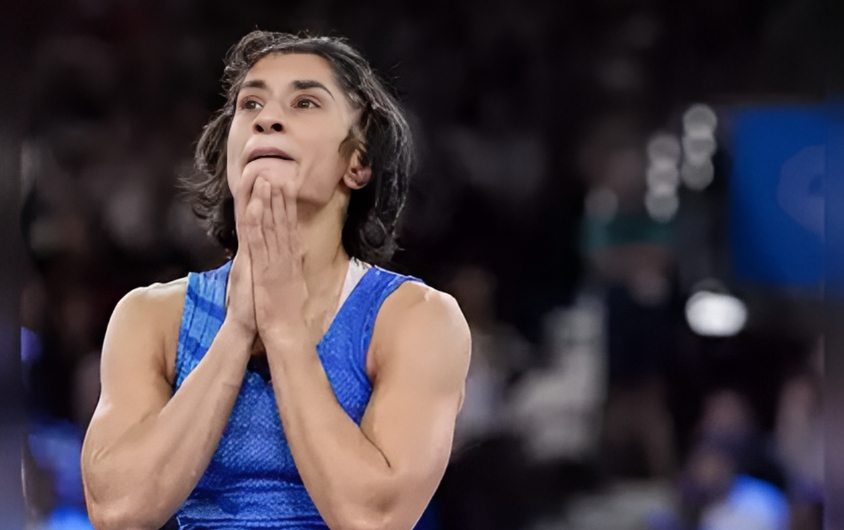
Is there a reason why Vinesh Phogat's plea for an Olympic silver medal was rejected?
The Court of Arbitration for Sport (CAS) issued a comprehensive 24-point ruling, characterizing the United World Wrestling’s regulations regarding penalties for athletes who fail to meet the second-day weigh-in requirements as “draconian.” However, the court did not grant any relief to Indian wrestler Vinesh Phogat. CAS emphasized that it was Vinesh Phogat’s obligation to ensure she remained within the allowable weight limit on both days of the women’s 50kg wrestling event at the Paris Olympics 2024.
Vinesh successfully passed the weigh-in on the first day of her competition but was found to be 100 grams over the limit on the second day, coinciding with her gold medal match, resulting in her disqualification and loss of a chance for a podium finish. She subsequently appealed to CAS for a joint silver medal, a request that was ultimately denied. An ad-hoc division of CAS had previously rejected her appeal on August 14, following three delays in the decision-making process.
In her appeal, Vinesh sought to be awarded a joint silver medal alongside Cuban wrestler Yusneylis Guzman Lopez, who had lost to her in the semifinals but advanced to the final due to Vinesh’s disqualification. The gold medal was secured by American wrestler Sarah Ann Hildebrandt. The Sole Arbitrator noted, “The consequences of the failed second weigh-in, which do not arise from any illegal or wrongful act on the part of the Applicant, are, in the opinion of the Sole Arbitrator, draconian. A consequence of elimination without ranking from the round for which the Athlete was found ineligible, having been eligible for the rounds for which she competed, would seem to be a fairer solution.”
According to UWW regulations, a wrestler must successfully complete the weigh-in on both days of the competition. While UWW permits a 2kg weight tolerance in various international events, including Ranking Series competitions, such leeway is not applicable at the Olympic Games. Vinesh made history as the first Indian woman wrestler to qualify for an Olympic final, and her disqualification sparked significant controversy in the wrestling community, particularly following her remarkable victory over the renowned Yui Susaki, who had previously maintained an unblemished record in her international career until facing Vinesh.
The Sole Arbitrator has determined that the Applicant willingly chose to participate in the 50 kg wrestling category, fully aware that this necessitated maintaining a competition weight below 50 kg. Article 7 of the Rules stipulates that each contestant participates voluntarily, assumes responsibility for her actions, and is permitted to compete in only one weight category, specifically the one that aligns with her weight at the time of the official weigh-in, as detailed in the CAS order published on Monday. The Applicant is recognized as an experienced wrestler who has previously competed in accordance with the Rules. There is no evidence to suggest otherwise, nor has the Athlete provided any indication that she was unaware of the weight requirements. She voluntarily entered the 50 kg category and, based on the evidence, engaged in a regimen to maintain compliance with that weight limit. Her assertion was that she lacked adequate time to complete a weight loss program, rather than claiming that it infringed upon her bodily rights.